NI welfare reform: Life at the sharp end of Stormont cuts
- Published
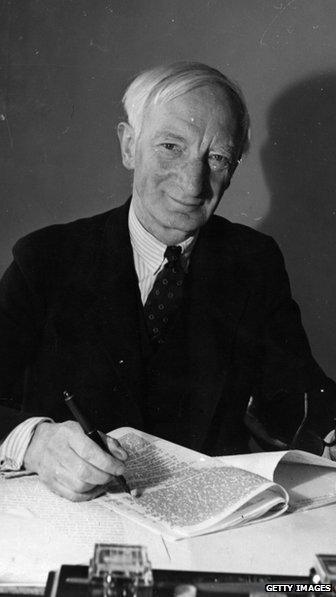
Sir William Beveridge wrote an influential report in 1942 that has since formed the basis for much social legislation
In 1942, the economist Sir William Beveridge set out a vision which was to shape the times.
He spoke to the Pathe Gazette about his idea of the "national minimum".
Sir William explained that it meant no-one was to fall below a certain standard of living.
He said: "It preserves the maximum of individual freedom and responsibility which is consistent with the abolition of want."
The concepts which he developed laid the foundation for the welfare state.
But 73 years on, want has not been abolished.
Much discussion over welfare at Stormont has focused on the "most vulnerable" and how they would be affected by changes to benefits.
What policies would be for the best is a matter of debate.
Poverty
But among people who currently receive benefits, the uncertainty is a common concern.
West Belfast has some of the highest levels of deprivation in the UK.
The Falls Women's Centre runs services aimed at breaking the cycle of poverty. These include education, advice, counselling and much else.
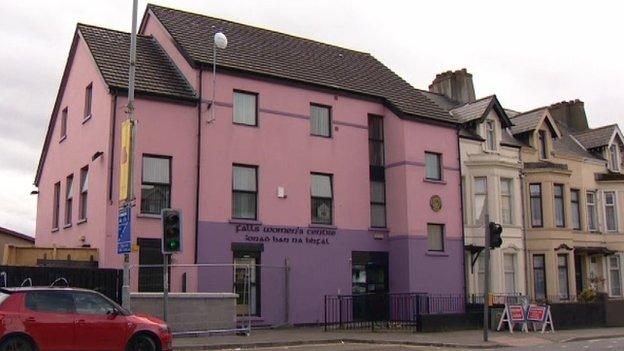
The Falls Women's Centre in west Belfast is among the organisations that have been affected by public spending cuts
But staff and users say recent cuts have hit the centre hard, and the doubt over welfare is causing more anxiety in the community.
Aisling White is a single parent with three children.
"No-one knows what's coming in," she told the BBC's The View programme.
"It's 2015 - you feel like we're going back a number of years rather than moving back into the future."
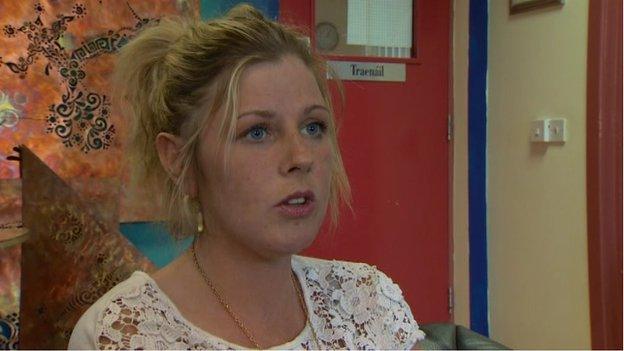
Single mother Aisling White told The View she was struggling to find the money to complete her training course
She is training for counselling qualification at the centre, but funding cuts are threatening that.
"I want to have a good job for myself and my children," she said.
"But I'm struggling, and find it very hard to find the money to go and do the diploma."
Repercussions
Angie Creighton is also worried about the combined effect of cuts to grants to community organisation and the continuing uncertainty over welfare.
"It's frightening for people - the elderly, people with disabilities, people with children with learning difficulties."
"I feel the local representatives should go door-to-door and tell people what's happening."
"There are a lot of repercussions from the Troubles - the suicide rate is high among young men in particular."
Eilidh Fleming, who is 70, worries about the lack of jobs for young people.
"Companies come in to Northern Ireland, then all of a sudden they're away. We have to get proper jobs."
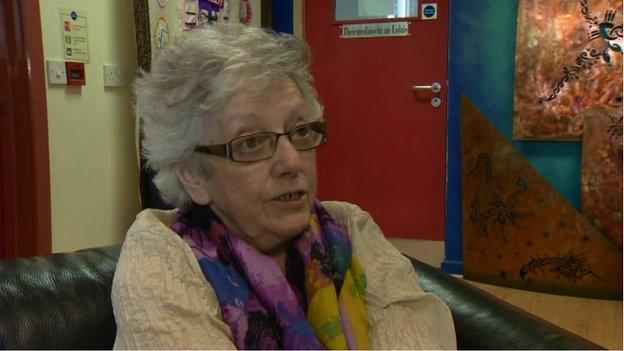
Eilidh Fleming said the community services provided by the Falls Women's Centre gives her a reason to leave her flat in the mornings
The pensioner said it was organisations like the women's centre that make all the difference to people in need.
"This place is why I get up in the morning and go out to face the world. Otherwise I'd stay in my flat and not come out."
Crisis
Another backstop to the welfare state is the network of food banks.
The first in Northern Ireland was at Newtownards, County Down, in 2011.
Now there are more than a dozen, with several more in development.
In the last year, almost 17,500 food parcels were handed out to people to help them through a crisis in the short term.
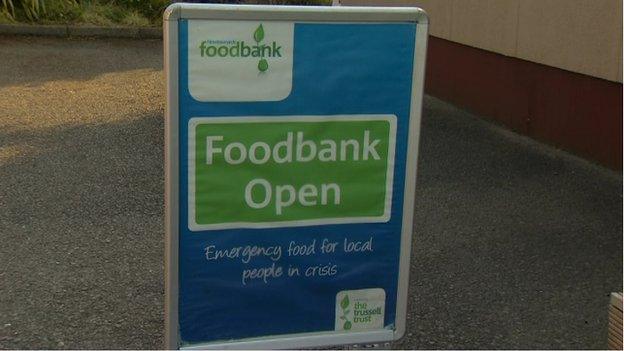
Over the last four years, more than a dozen foodbanks have opened in Northern Ireland
The volunteers at Newtownards Foodbank told The View that there were a range of reasons why someone would not be able to afford food.
Debt, a delay in the payment of benefits and redundancy are three of the most common.
They see many people who are in a job, but who do not have enough money to put three meals a day on the table.
Foodbank manager Julieann Brownlee sais: "The food bill is elastic. If something in someone's family changes, and there's a crisis, food is the first to go.
"We see it week-in, week-out - heat or eat. Because it hasn't been warm recently, people are still making the choice as to whether to heat their home or buy food."
There is no shortage of demand for charity.
As of February this year, there were just over 250,000 people between 18 and 65 claiming what is called a 'key benefit': that includes jobseekers' allowance, employment and support allowance and income support.
The number receiving disability living allowance (DLA) was just over 200,000 people.
That is 11% of the population - twice the UK rate.
Michaela Hollywood has campaigned on disability issues.
She has muscular dystrophy, and is doing a masters degree.
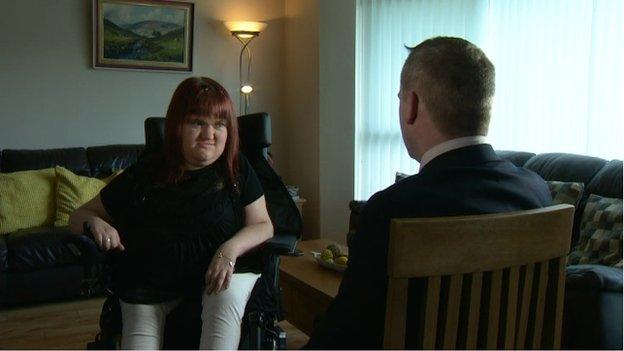
Disability campaigner Michaela Hollywood said many disabled people are not getting the financial help they deserve
She said there should be changes to the welfare system, but has some worries.
"I've seen every trick in the book, but not everyone is playing it.
"I know there are people who try to work the system, but at the same time there are many genuine cases who don't get what they deserve."
Welfare, work and wealth have become the defining issues of this Stormont administration.
As the questions over its future remain the questions of people affected by its decisions are increasing.
Chris Page's report will be broadcast on The View on BBC One Northern Ireland at 22:45 BST on Thursday 4 June.